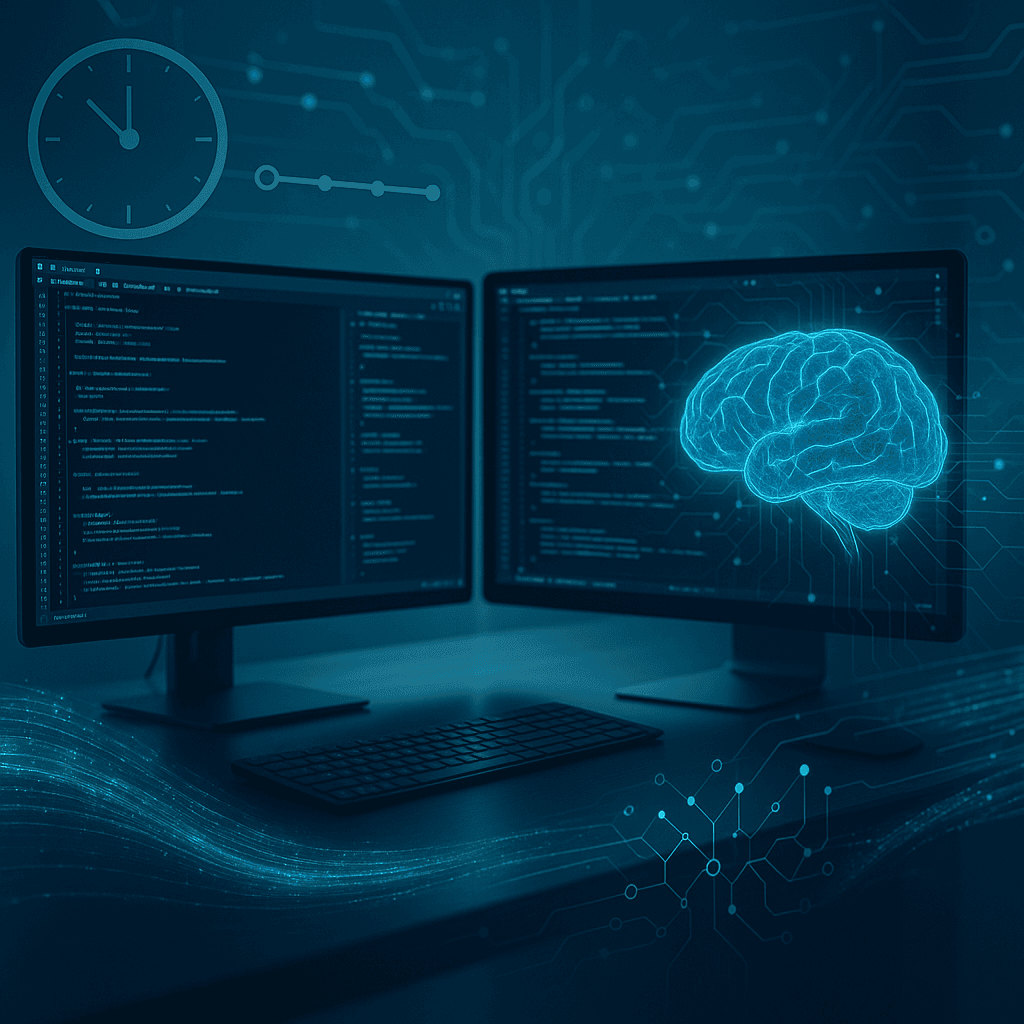OpenAI just dropped a major upgrade to its Codex AI coding agent, powered by a specialized version of GPT-5 that can think through complex coding problems for up to seven hours. The new GPT-5-Codex model dynamically adjusts its processing time in real-time, marking a significant leap in AI-powered development tools as the company battles intensifying competition from Cursor, GitHub Copilot, and Claude Code.
OpenAI just made a bold move in the heated AI coding wars. The company announced Monday it's unleashing GPT-5-Codex, a specialized version of its flagship model that can spend anywhere from seconds to seven hours wrestling with a single coding problem. Unlike traditional AI models that decide upfront how much computational juice to dedicate to a task, GPT-5-Codex continuously evaluates whether it needs more thinking time - and just keeps going if the problem demands it. The upgrade is rolling out now to all ChatGPT Plus, Pro, Business, Education, and Enterprise users through Codex, accessible via terminal, IDE, GitHub, or ChatGPT interfaces. API customers will get access later. This isn't just a incremental update - it's OpenAI's response to an increasingly crowded battlefield where AI coding tools have become the hottest territory in enterprise software. The numbers tell the story: Cursor blazed past $500 million in annual recurring revenue earlier this year, while competitor Windsurf became the center of a messy acquisition fight that split its team between Google and Cognition. Microsoft's GitHub Copilot and Anthropic's Claude Code are also pushing hard into the space. Alexander Embiricos, OpenAI's Codex product lead, explained the breakthrough during a company briefing. 'The key difference is that GPT-5-Codex doesn't use a router that makes upfront decisions about computational resources,' he said. 'It can be five minutes into a problem and decide it needs another hour. We've seen it work for upwards of seven hours on complex tasks.' That dynamic thinking approach sets GPT-5-Codex apart from both its predecessor and competing tools. Traditional AI coding assistants typically allocate fixed amounts of processing power based on initial problem assessment. But GPT-5-Codex continuously re-evaluates, potentially discovering mid-task that what seemed like a simple bug fix actually requires deep architectural analysis. The performance gains are measurable. says GPT-5-Codex significantly outperforms standard GPT-5 on , the industry standard benchmark for agentic coding abilities. It also scores higher on code refactoring tasks involving large, established repositories - the kind of messy, real-world codebases that trip up most AI tools. Beyond raw coding performance, trained GPT-5-Codex specifically for code reviews, an area where AI has traditionally struggled with nuance. When experienced software engineers evaluated the model's review comments, they found GPT-5-Codex submitted fewer incorrect comments while providing more 'high-impact' feedback that actually improved code quality. The timing isn't coincidental. Developer tools have become the proving ground for AI capabilities, with companies like , , and all racing to capture what's becoming a multi-billion dollar market. The appeal is obvious - coding assistance directly translates to productivity gains that enterprises can measure in reduced development time and fewer bugs. But the competition is fierce. Cursor's meteoric rise showed that developers will quickly switch tools if they find something better. The company's success forced established players to rethink their strategies, leading to today's announcement from . What makes GPT-5-Codex particularly interesting is its approach to the fundamental trade-off in AI systems between speed and quality. Most tools optimize for quick responses to keep developers in flow state. GPT-5-Codex instead adapts its response time to problem complexity, potentially changing how developers think about AI assistance - less like an autocomplete tool, more like a tireless coding partner willing to spend hours on hard problems.












